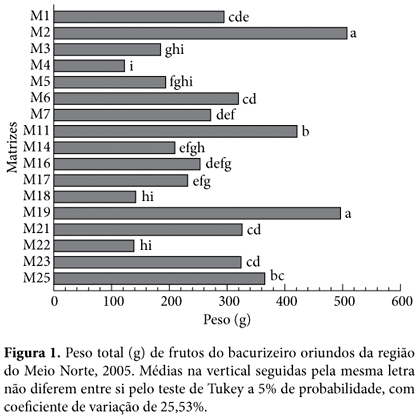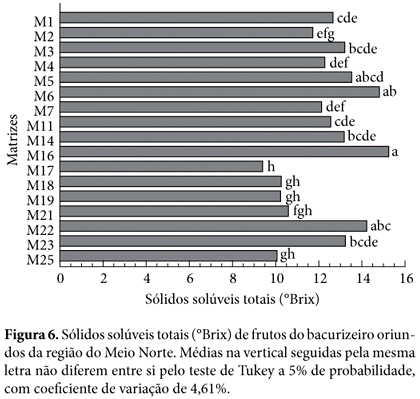The purpose of this work was to evaluate the quality of bacuri from different genotypes proceeding from the state of Piauí, mid-northern region of Brazil. Mature fruits from 17 different genotypes were harvested directly from the ground, transported to Embrapa Mid-North, in Teresina, Piauí, Brazil, and the following physical analyses were performed: total weight, length, diameter, pulp yield, and number of seeds. The pulp was extracted from each genotype and divided in three lots, where each lot represented a repetition, packed in plastic bags, homogenized, frozen at -20 °C and transported to the Postharvest Physiology and Technology Laboratory at Embrapa Tropical Agroindustry, in Fortaleza, Ceará, Brazil. The following physical-chemical analyses were performed: soluble solids, acidity, pH and TSS/TTA ratio. A completely randomized design was used, with the Tukey test at a 5% level, once the significance was verified by the F test. The genotypes presented significant differences (p < 0.05) in all the analyses performed. For fresh consumption, matrixes M6, M14, M22 and M23 presented a good yield of pulp and values of TSS and TSS/TTA ratio higher than the others matrixes. The highest industrial yields were observed for matrixes M5, M14, and M21, taking into account pulp percentage and TSS, which were considered higher than the average in this study.
characterization; genotypes; bacuri

 Physical and physico-chemical characterization of fruits from different genotypes of bacuri (Platonia insignis Mart.)
Physical and physico-chemical characterization of fruits from different genotypes of bacuri (Platonia insignis Mart.)







